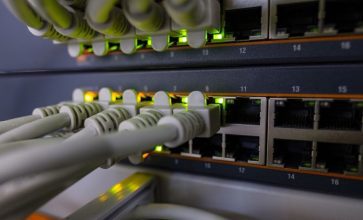Reintroduced Senate Bill Could Increase Funding For Rural Internet
A bill that has been recently reintroduced into the Senate could result in more funds for companies to provide internet services in rural areas. The funds could be used to fund new projects that could expand broadband coverage, issue bonds that are tax-exempt for providers, and assistance for customers who need help paying their bills.
Structure of the Bill:
Sen. Shelley Moore Capito from West Virginia is trying to bring forth bipartisan legislation to the Senate floor that could help many state and local governments get the money that they need to provide internet for more people who need services for everything from working to taking classes online so that they don’t miss school. Sen.
Maggie Hassan from New Hampshire is also getting in on the action as they want both parties to put their differences aside in order to help the people they represent. If passed, the Rural Broadband Financing Flexibility Act would pave the way for government offices to obtain the needed funds to increase structure so that internet providers can access more people.
Initial Efforts:
Capito launched an effort in 2015 that didn’t turn out the way that it was planned. Capito hasn’t set aside the initial plan and wants to expand on it with help from other senators.
With help from Hassan, Capito hopes that the bill can pass through so that providers can begin to close the gap for rural customers who might not have the same kind of internet access that customers in urban areas have.
This could mean that rural customers can maintain communications with family members, friends, and employers. They could also begin closing the educational gap as they would be able to perform research for classes or even take classes online when schools are closed.
If there are financing options for businesses and customers, then the process of internet expansion could be easier for everyone involved.
A Wakeup Call:
One of the things that COVID-19 has taught many people is that there are some who have better access to basic services than others.
This bill could begin to put more people on the same playing field so that students don’t fall behind in school, people get the medical attention that they need when they aren’t able to leave home and work when they aren’t able to go to the office.
People need fast internet services and those that are reliable instead of using services that are dated, such as those that are connected through a reliable internet satellite dish. Providers would have the funds from the bill to build structures in rural areas that could provide cable internet to families and businesses.
West Virginia is one of the states that sits close to the bottom of the list when it comes to broadband connectivity. About 30% of people in the state don’t have access to the internet at all or only have access to services that are limited and not reliable.
When there’s a lack of stable internet services, businesses suffer as well as families. The economy can be impacted as well as school systems and the creation of businesses in rural areas.
The Federal Communications Commission would be at the forefront of the bill and would be pressed to try to do everything possible in order to get broadband coverage to more areas in West Virginia, New Hampshire, and other states that are impacted.






















